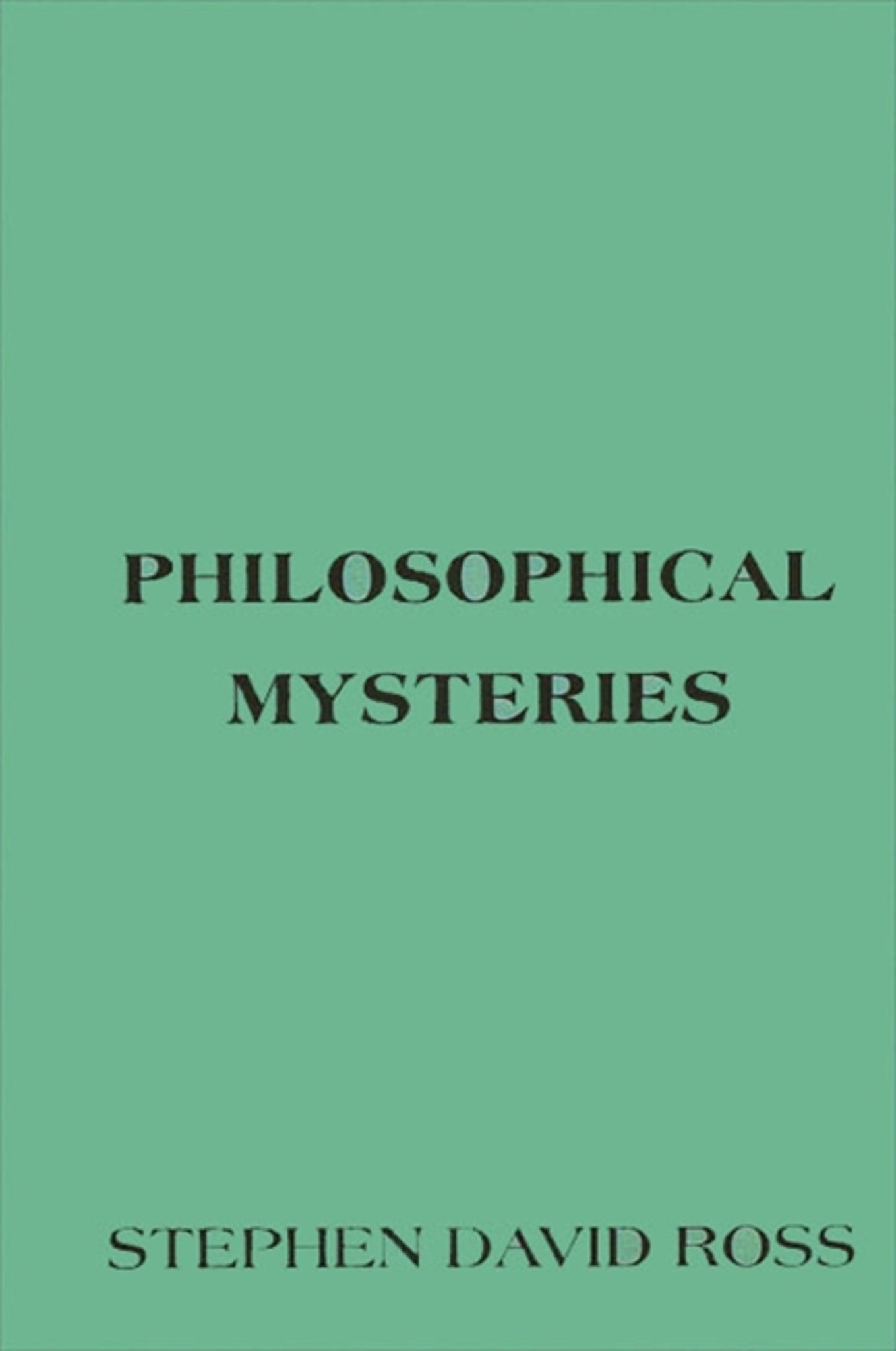We're sorry. An error has occurred
Please cancel or retry.
Philosophical Mysteries

Some error occured while loading the Quick View. Please close the Quick View and try reloading the page.
Couldn't load pickup availability
- Format:
-
30 June 1981

"This is my major thesis. Mystery is inherent in both the nature of things and the nature of rationality. I will sustain this thesis by a review of some of the central issues of philosophy to elucidate their mysterious qualities. More important, however, I will develop in detail an explanation of mystery and trace some of its important ramifications."
"I will argue that an ordinal metaphysics, with its associated theory of query, provides an account of mystery that no other theory can provide.
"While the theory presented here is a theory of philosophical mystery, it has fundamental implications for all branches of knowledge, including the physical and social sciences.
"In short, I speak against a simplistic view of the world and of experience based on a simplistic and narrow conception of understanding and rationality. Mystery calls not for veneration and awe, but for a full and complex activity of mind, broaching all established conditions in its pursuit of answers....Reason is fulfilled as completely in mysteries which persevere throughout our efforts to resolve them as in mysteries which are resolved and dissipated, passing into new questions to which we must find new answers, in an unterminating process of rational interrogation." - From the Preface by Stephen David Ross


Acknowledgment
Preface
Introduction
General Remarks
Philosophical Argument
Philosophy as Art
I. Being
The mystery of Being is the mystery of Non-being
The mystery of Being is the mystery of the totality of things
The mystery of Being is that there is anything at all
The mystery of Being is that there is no reason for the existence of the world
The mystery of Being is the mystery of what the world is
The mystery of Being is that Being is inexhaustible
The mystery of Being is the nature of the universe
II. Some philosophic mysteries
Time and Becoming
Freedom and Responsibility
Mind
Value
III. God
The Divine Attributes
Godless Religion
Religious Pluralism
Religious Judgment
IV. Ordinal Pluralism
Ordinality
Integrity and Scope
Gross Integrity and Identity
Prevalence and Deviance
Ordinality and Non-being
Ontological Parity
The Inexhaustibility of Orders
Possibilities and Actualities
Ordinality and Being
Judgment
V. Mystery and Philosophy
The Origins of Mystery
Mystery and Judgment
Ultimate Mysteries
Reason and Mystery
VI. Implications and Conclusions
Notes
Index



